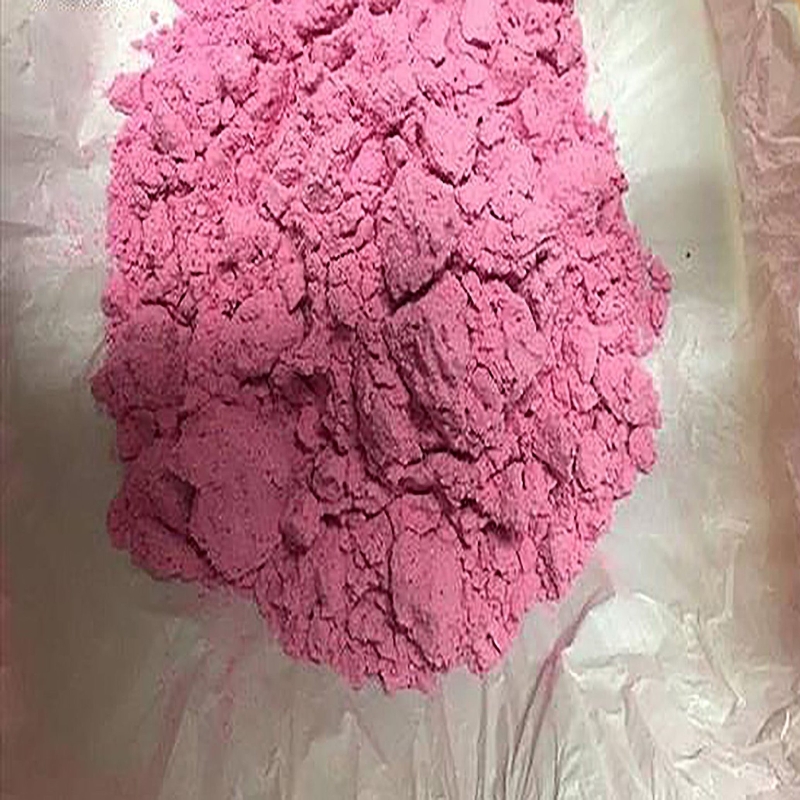-
Categories
-
Pharmaceutical Intermediates
-
Active Pharmaceutical Ingredients
-
Food Additives
- Industrial Coatings
- Agrochemicals
- Dyes and Pigments
- Surfactant
- Flavors and Fragrances
- Chemical Reagents
- Catalyst and Auxiliary
- Natural Products
- Inorganic Chemistry
-
Organic Chemistry
-
Biochemical Engineering
- Analytical Chemistry
-
Cosmetic Ingredient
- Water Treatment Chemical
-
Pharmaceutical Intermediates
Promotion
ECHEMI Mall
Wholesale
Weekly Price
Exhibition
News
-
Trade Service
At the beginning of this year, among the 40 dietary patterns ranked by US News & World Report, the Mediterranean diet successfully defended its title, winning the title for five consecutive years
.
It is not so easy to copy the homework of the champion.
At the beginning of this year, among the 40 dietary patterns ranked by US News & World Report, the Mediterranean diet successfully defended its title, winning the title for five consecutive years
US New Weekly Diet Rankings
US New Weekly Diet Rankings
The use of olive oil is widely regarded as one of the "secrets" of the Mediterranean diet's reigning champion
.
In the Mediterranean region rich in olive oil, olive oil has naturally become the main cooking and seasoning oil in the local country
The use of olive oil is widely regarded as one of the "secrets" of the Mediterranean diet's reigning champion
Recently, Professor Hu Bingchang's team from the Department of Nutrition at the Harvard School of Public Health found that higher olive oil intake was associated with lower overall and cause-specific mortality, replacing margarine, butter, mayonnaise or olive oil with olive oil.
Dairy products contain fat, which can significantly reduce the risk of death
doi: 10.
1016/j.
doi: 10.
The study collected data from 60,582 women from the Nurses' Health Study (NHS) and 31,801 men from the Health Professionals Follow-up Study (HPFS) between 1990-2018 Health data to assess the association between olive oil consumption and total and cause-specific mortality
.
.
At the start of the study, all participants were free of cancer, heart disease and other chronic diseases
.
After that, the researchers mailed a questionnaire to the participants every 2 years to learn about their life>(FFQ) to investigate their diet over the past year every 4 years
At the start of the study, all participants were free of cancer, heart disease and other chronic diseases
During 28 years of follow-up, 36,856 participants died (22,768 in the NHS and 14,076 in the HPFS)
Variation trend of consumption of different oils and fats in NHS from 1990 to 2010
Variation trend of consumption of different oils and fats in NHS from 1990 to 2010After excluding the influence of confounding factors such as age, race, and life>mortality .
related .
Participants who consumed >7g (>0.
5 tablespoon) of olive oil per day had a 19% reduction in all-cause mortality and cardiovascular disease mortality compared to never or <1 time per month (the lowest level) 19%, a 17% reduction in cancer mortality, a 29% reduction in neurodegenerative disease mortality, and an 18% reduction in respiratory disease mortality .
Vascular as a continuous variable, there was also a significant decrease (between 2% and 14%) in total and cause-specific mortality for every 5 g increase in olive oil intake .
Under different olive oil intakes, the HR of total mortality and special-cause mortality is more than double the price of olive oil.
Will people who can eat olive oil for a long time die because they are richer? What about lower risk? To answer this question, researchers adjusted for household income, home value, and educational background in a sensitivity analysis to further control for potential confounding effects of socioeconomic status .
After adjustment, the results did not change substantially, and there was still a significant difference, with a significantly lower overall mortality rate of 19% in the high olive oil intake group than in the lowest group .
However, in the aforementioned study, the researchers only focused on the intake of olive oil and did not classify other edible oils, so will the results be different when olive oil is used to replace different edible oils? In a multivariate adjusted model,
Replacing 10 g/d of margarine with 10 g/d of olive oil was significantly associated with a 13% reduction in overall mortality
.
Replacing fat in butter, mayonnaise or dairy with olive oil reduced overall mortality by 14%, 19% and 13%, respectively
.
Cause-specific mortality, including mortality from cardiovascular disease, cancer, neurodegenerative disease, and respiratory disease, decreased significantly in line with the results for overall mortality
.
However, it is worth noting that the researchers found that the risk of death did not change significantly when olive oil was used to replace other vegetable oils ( such as corn oil, rapeseed oil, soybean oil, etc.
) .
Taken together, consumption of more than half a tablespoon of olive oil per day was associated with a significant reduction in overall mortality by 19%, cardiovascular mortality by 19%, cancer mortality by 17%, and neurological mortality by 29% compared with zero intake.
Degenerative disease mortality, 18% respiratory disease mortality .
Replacing fats in animal oils, margarine, mayonnaise, and dairy products with olive oil was associated with a lower risk of death, but not with other vegetable oils .
"Our study shows that although olive oil is superior to most animal fats and margarines, it is not superior to vegetable oils," said Dr.
Marta Guasch-Frrer, lead author of the study.
"This means that replacing animal fats with vegetable oils is an improvement Excellent strategy for cardiovascular health .
” In fact, vegetable oils like corn oil, canola oil, soybean oil, etc.
are commonly used cooking oils in China .
From the perspective of reducing the risk of death alone, there is not much need to discard other vegetable oils and use only olive oil, after all, price is also a big consideration .
References: Guasch-Ferré M, Li Y, Willett WC, Sun Q, Sampson L, Salas-Salvadó J, Martínez-González MA, Stampfer MJ, Hu FB.
Consumption of Olive Oil and Risk of Total and Cause-Specific Mortality Among US Adults.
J Am Coll Cardiol.
2022 Jan 18;79(2):101-112.
doi: 10.
1016/j.
jacc.
2021.
10.
041.
PMID: 35027106; PMCID: PMC8851878.
leave a message here







